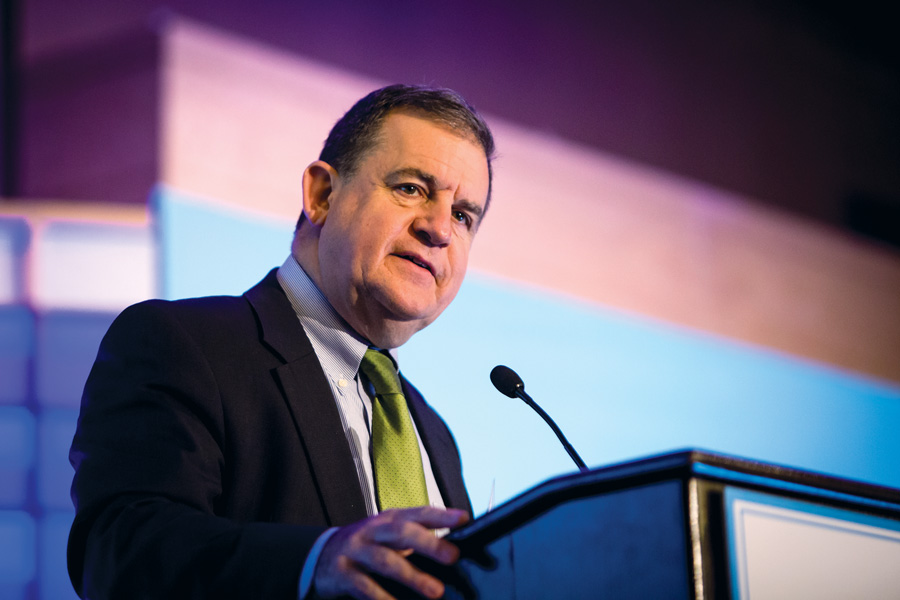The next economic recession in the U.S. isn't likely to hit for at least a few years, according to Bob Doll, chief equity strategist and senior portfolio manager at Nuveen. He said the country's near-record period of economic expansion still has room to run, but cautioned that the Federal Reserve will likely serve as the economy's eventual undertaker.
There aren't indicators of a recession within the next 18 months, despite signs the economy is beginning to slow and the economic cycle is maturing, said Mr. Doll. He speculates the next recession will arrive in 2021 — a view
shared by most business economists.
In the meantime, he said the present period of economic expansion would become the longest in U.S. history if it lasts until June 30 — a near certainty.
"The temptation is to say it's old, it's on a crutch or in a wheelchair, on oxygen, on its last legs," Mr. Doll said Monday at an event hosted by the Financial Planning Association's Metro New York chapter.
But periods of economic growth don't die because of old age, he said.
"They get murdered. The murderer? The Fed, almost always," Mr. Doll said of the Federal Reserve's practice of raising interest rates to combat inflation it views as too high. "Eventually, inflation will be the excuse for a murder."
(More: A recession? Financial advisers say it's right around the corner — or not)
The good news: Inflation isn't currently a problem, Mr. Doll said. The Federal Reserve typically "gets its sickle out" when trailing 12-month wage growth hits 4%, he said. The measure currently sits at 3.2%; that's elevated from years of roughly 2% post-Great Recession, but the U.S. is unlikely to see growth reach 4% anytime soon, Mr. Doll said.
"Keep your eye on wage growth," he cautioned financial advisers.
(More: Smart money is pouring into fixed income)
Growth of U.S. gross domestic product was roughly 3% last year and is expected to slow to around 2% this year, Mr. Doll said. The Purchasing Managers' Index (PMI), an economic indicator, has somewhat slowed, he said. However, the economy appears healthy according to several metrics.
The U.S. consumer is in "good shape" — almost every measure of unemployment has hit a modern low, wage growth is accelerating, and a savings rate of about 7.5% is "uncharacteristically high" at this point in the economic cycle, Mr. Doll said.
Government spending continues to be strong and foreign trade is mixed. And last quarter's GDP growth of 3.2%, a faster-than-expected pace, was a "big number," Mr. Doll said.
And, while the yield curve in U.S. Treasuries inverted for a short period a few weeks ago, which investors typically view as a sign of impending recession, that's only useful as an indicator if there's a sustained inversion, Mr. Doll said.
But Mr. Doll cautioned against taking his perspective as gospel.
"When's the next recession? I have no clue," he said. "Anyone who does claim they do know is lying to you. No one has a clue."







